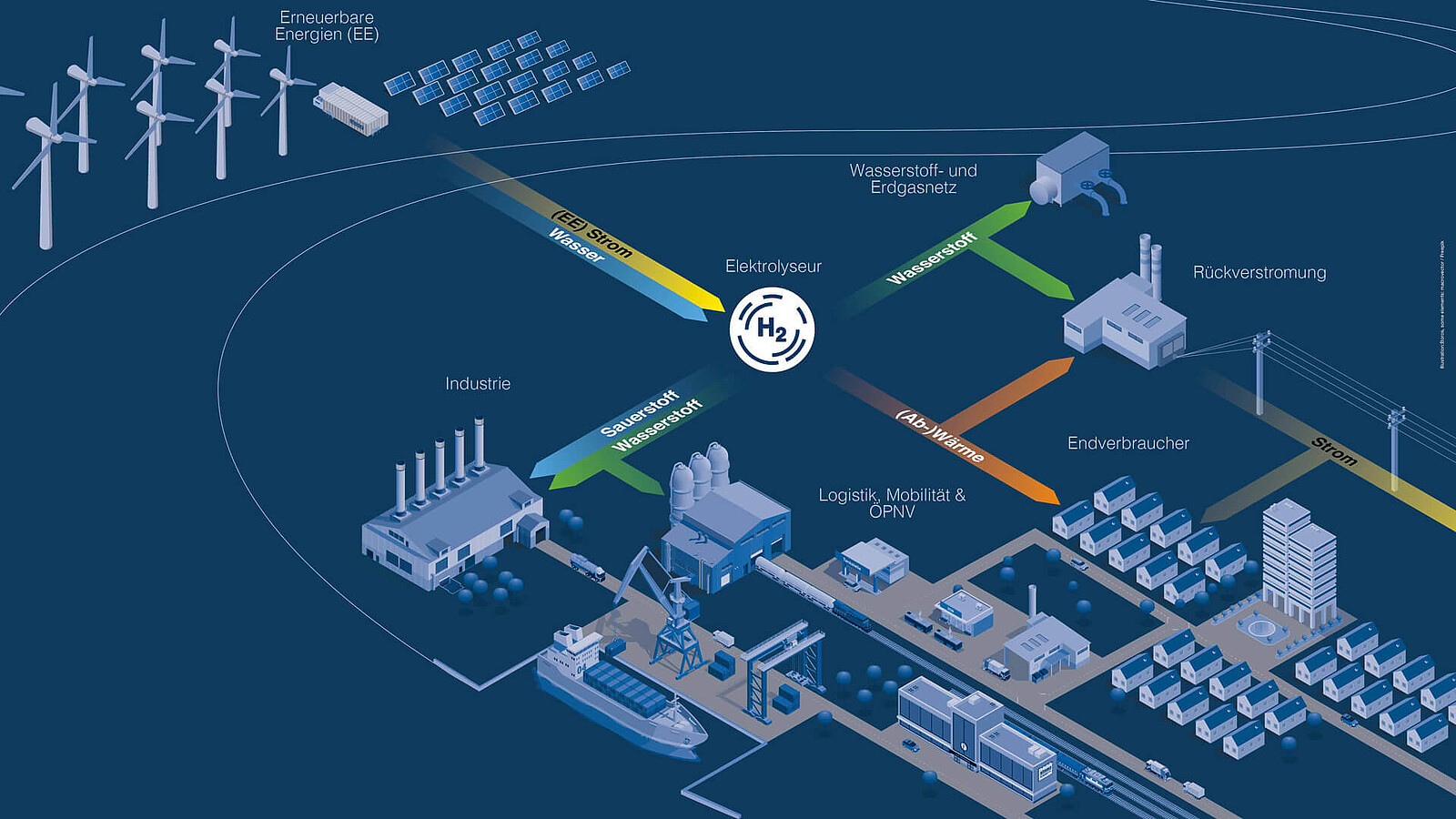HydroHub Fenne
The hydrogen infrastructure project for Saarland
The project outline for the hydrogen infrastructure project "HydroHub Fenne", which Iqony drafted together with the project partners Siemens Energy, the Institute for Future Energy and Material Flow Systems (IZES gGmbH) and the German Research Center for Artificial Intelligence (DFKI GmbH) and submitted to the ideas competition "Reallabor der Energiewende" of the German Federal Ministry of Economics and Technology, was selected from 90 entries and found eligible for funding. With the selected projects, the German government wants to accelerate the expansion of hydrogen technologies and the establishment of sector coupling and bring them to market maturity.
The core element of the HydroHub is an electrolyzer with a capacity of just under 53 megawatts (MW), which will be built at the long-established Iqony site in Völklingen-Fenne by 2026. In the future, the green hydrogen produced there can make an important contribution to the decarbonization of Saarland industry and the mobility sector. Currently, several agreements in principle with regional companies on the supply of hydrogen and oxygen from Fenne are about to be concluded.
But regardless of exactly where Iqony's green hydrogen, i.e. generated by means of renewable energies and thus climate-neutral, is used in the future - it can make an important contribution in many areas to Germany achieving the climate targets it has set itself.
It is conceivable, for example, that green hydrogen could help the steel industry replace CO2-intensive coke in pig iron production in the future. Hydrogen can also be added to the regional natural gas network and supply hydrogen filling stations for fuel cell vehicles in the Saarland. In particular, the supply of local public transport by means of hydrogen-powered buses is an obvious option. This variant also offers citizens direct added value in their daily lives in the form of reduced exhaust emissions in the cities.
Finally, the heat generated during the production of hydrogen can be fed into the grid of the Saar district heating network (FVS). Another option is the time-delayed reconversion of hydrogen into electricity by using it in highly energy-efficient gas and steam turbine plants when, for example, there is a dark lull, i.e. when the sun is not shining sufficiently and there is also no wind, so that renewable energies alone cannot cover the energy demand in Germany.
Project development is already well advanced. Furthermore, the Fenne HydroHub has successfully cleared the first hurdles on the way to notification as an "Important Project of Common European Interest" (IPCEI). In addition, HydroHub Fenne is integrated into a cross-border project network with partners from France and Luxembourg: together they form the "Grande Region Hydrogen" (GRH). The goal is the successful ramp-up of a hydrogen economy in the European network.
